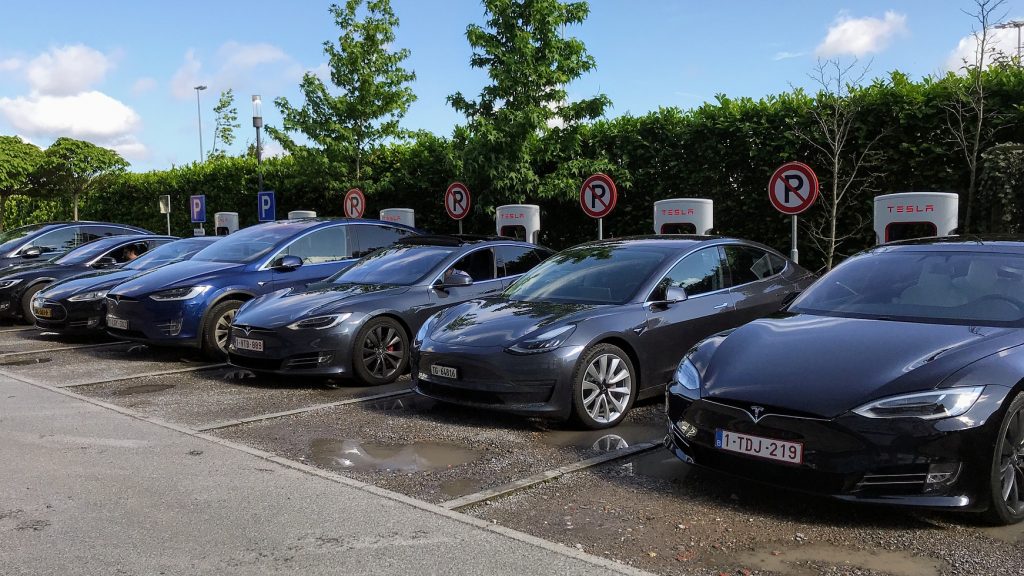Why Most Major Companies Are Embracing Electric Vehicles For Their Businesses
This article is more than 2 years old

The one thing that determines a business’s success or failure is and will always be its performance when it comes to its bottom line. Essentially, the larger the difference between the total amount of total revenue over the total amount of expenses determines the level of success a business has achieved. And one thing electric vehicles have demonstrated is that they are cutting the company’s expenses while adding to the revenue totals, hence why so many are opting to integrate them into their businesses.
Major companies own fleets of vehicles because of the necessary role the vehicles play in the delivery of their services to customers. Some companies jumped on the electric vehicle bandwagon early. For instance, Amazon inked a deal with Rivian to purchase 100,000 electric delivery vehicles over the next 10 years from the car manufacturer. Now that some of those vehicles are in use in a few hundred cities all across the country, Amazon is starting to reap the benefits of the transition.
Amazon set a lofty goal to convert its entire delivery fleet from gas-powered internal combustion engine vehicles to environmentally friendly electric-powered vehicles by 2040. After listening to the company executives share their observations about how the transition is going the compnay would prefer to move that timeline up about 10 or 15 years to meet their net zero carbon emissions footprint goal by 2030.
Some of the benefits they are seeing right away are the company’s gasoline bills disappearing right before their eyes. Prices for a barrel of oil are still incredibly high even though it has calmed some in the 3rd and 4th quarters of 2022. However, gasoline is still expensive and it is a never-ending expense for businesses like Fed Ex, UPS, Amazon, DHL, the United States Post Office, and all other local companies that have delivery as a necessity to render their services.
According to NBC News, these Amazon electric vehicles can travel, “250 miles and 10 hours on a single charge.” The charging period occurs overnight and the electricity is derived from solar panels that suck up the sun’s rays converting it into electricity for the cars to utilize the following day. That means the company’s electric bill is not affected at all.
Moreover, in New York City, beer distribution companies have already converted their entire fleet to electric Volvo delivery trucks. Joshua Santiago, who has been a truck driver in the industry for over 35 years was asked which vehicle was more powerful or as powerful as his old diesel truck or this electric Volvo he responded, “Oh this is more powerful, way more powerful. It’s quicker, more quieter. And best of all it’s clean air.”
Not only are these vehicles running on renewable energy that doesn’t require fossil fuels and emits zero carbon emissions, but they also perform on the road in real-world conditions better than their antiquated ancestor gas-powered vehicles. Another bottom-line item that electric vehicles are eliminating is maintenance costs are way down because the engine doesn’t have hundreds of moving parts consisting of belts, bearings, pistons, shafts, and cranks that over the life of the vehicle start to loosen and break. Companies have eliminated any fuel expenses but they also drastically reduced the expense to maintain the vehicles throughout the car’s life cycle.
This fleet transition is decreasing expenses and now that we know the vehicles haven’t been taken out of service for constant maintenance due to breakdowns on the road, it translates to more usage from an individual asset and that increases revenue. Now that we see the difference in the company’s balance sheet all the companies that were dragging their feet on starting this transition. They will rapidly be stepping up their plans to catch up with their competitors. Every day that they are not keeping pace with their competitors is another day that they are falling behind on maximizing their performance on their company’s balance sheet.



